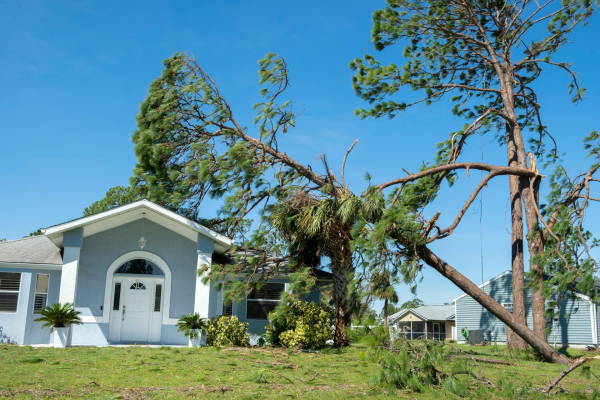

By Stacy Ann Stephens, Senior Loan Officer at Jhenesis Mortgage
As you approach the final steps of your homebuying journey in Florida, you’ll likely see hazard insurance listed in your closing documents. If you’re wondering what it is and why it’s critical in the Sunshine State, you’re not alone. As a Senior Loan Officer at Jhenesis Mortgage, I’ve helped countless Florida buyers navigate this essential part of homeownership. Let’s dive into why hazard insurance is a must.
What Is Hazard Insurance?
Hazard insurance, typically part of your Florida homeowners insurance policy, protects your property from specific risks, or “hazards.” In Florida, these often include:
- Hurricanes and windstorms
- Fire or smoke damage
- Lightning strikes
- Theft or vandalism
- Explosions
- Certain types of water damage or ice damage
If your home is damaged by a covered event, hazard insurance helps cover repair or replacement costs, protecting your investment in Florida’s unique climate.
Why Florida Homebuyers Need Hazard Insurance
If you’re using a mortgage to buy a home in Florida, your lender will require hazard insurance before closing. The property serves as collateral for your loan, and lenders want to ensure it’s protected from Florida-specific risks like hurricanes, windstorms, or fires.
Even if you’re paying cash, skipping hazard insurance in Florida is a gamble. A single storm could devastate your finances, especially in a state prone to extreme weather. Hazard insurance is your safety net for homeownership in Florida.
Florida’s high-risk environment also means insurance costs can be higher than in other states, making it crucial to understand your policy options.
The One-Year Rule for Florida Buyers
Most lenders require you to prepay the first year of hazard insurance at closing. This cost is included in your “prepaid items” on your loan estimate and closing disclosure. In Florida, this upfront expense is non-negotiable, ensuring your home is protected from day one and allowing your loan to close on time.
How to Choose the Right Hazard Insurance Policy in Florida
Selecting a hazard insurance policy in Florida requires extra care due to the state’s unique risks. Here’s how to choose wisely:
- Compare Quotes: Get quotes from at least three to five insurance companies specializing in Florida homeowners insurance.
- Review Coverage: Ensure the policy covers hurricanes, windstorms, and theft. Check for exclusions like wind-driven rain.
- Evaluate Deductibles: Florida policies often have separate hurricane deductibles (2-5% of the home’s value). A higher deductible can lower your monthly premium, but ensure you can afford it.
- Check Policy Limits: Confirm the policy covers the full cost to rebuild your home, factoring in Florida’s high construction costs.
Standard hazard insurance in Florida often excludes floods and may require separate windstorm coverage for hurricanes. Most Florida homes need flood insurance, especially in FEMA-designated flood zones. You may also consider sinkhole coverage in areas like Central Florida.
Can You Write Off Hazard Insurance in Florida?
Generally, hazard insurance premiums for your primary residence in Florida are not tax-deductible. However, if the property is a rental, second home, or investment property, you may be able to include premiums in itemized deductions. Consult a tax advisor familiar with Florida tax laws for guidance.
The Bottom Line for Florida Homebuyers
Hazard insurance is more than a mortgage requirement—it’s a critical shield for your home and finances in Florida’s high-risk environment. Key takeaways:
- It covers risks like hurricanes, fires, and theft.
- Lenders require a policy before closing to protect their investment.
- You’ll prepay the first year at closing.
- Shop around for cost and coverage, especially for flood and windstorm protection.
With the right hazard insurance, you can confidently navigate homeownership in Florida.
Frequently Asked Questions (FAQ)
What is hazard insurance, and why is it critical in Florida?
Hazard insurance is part of Florida homeowners insurance, covering risks like hurricanes, fires, and theft. It’s essential in Florida due to frequent storms and high-risk weather.
Why do Florida lenders require hazard insurance?
Lenders require hazard insurance to protect the property, which is collateral for your mortgage. In Florida, this is crucial due to hurricane and flood risks.
How much does hazard insurance cost in Florida?
Costs vary by home value, location, and coverage, but Florida premiums are often higher due to storm risks. Expect to prepay $1,000-$3,000 or more for the first year at closing.
Does hazard insurance in Florida cover floods or hurricanes?
Standard hazard insurance often excludes floods and may require separate windstorm coverage for hurricanes. Most Florida homes need flood insurance for full protection.
Can I shop around for hazard insurance in Florida?
Yes, compare quotes from multiple insurance companies specializing in Florida homeowners insurance to find the best premium, coverage, and deductible.
Ready to secure hazard insurance and finalize your Florida home purchase? Contact Stacy Ann Stephens 407-630-9766, Senior Loan Officer at Jhenesis Mortgage, for expert guidance on finding the right policy and navigating your mortgage process. Schedule a call today to ensure a smooth path to homeownership in Florida!
